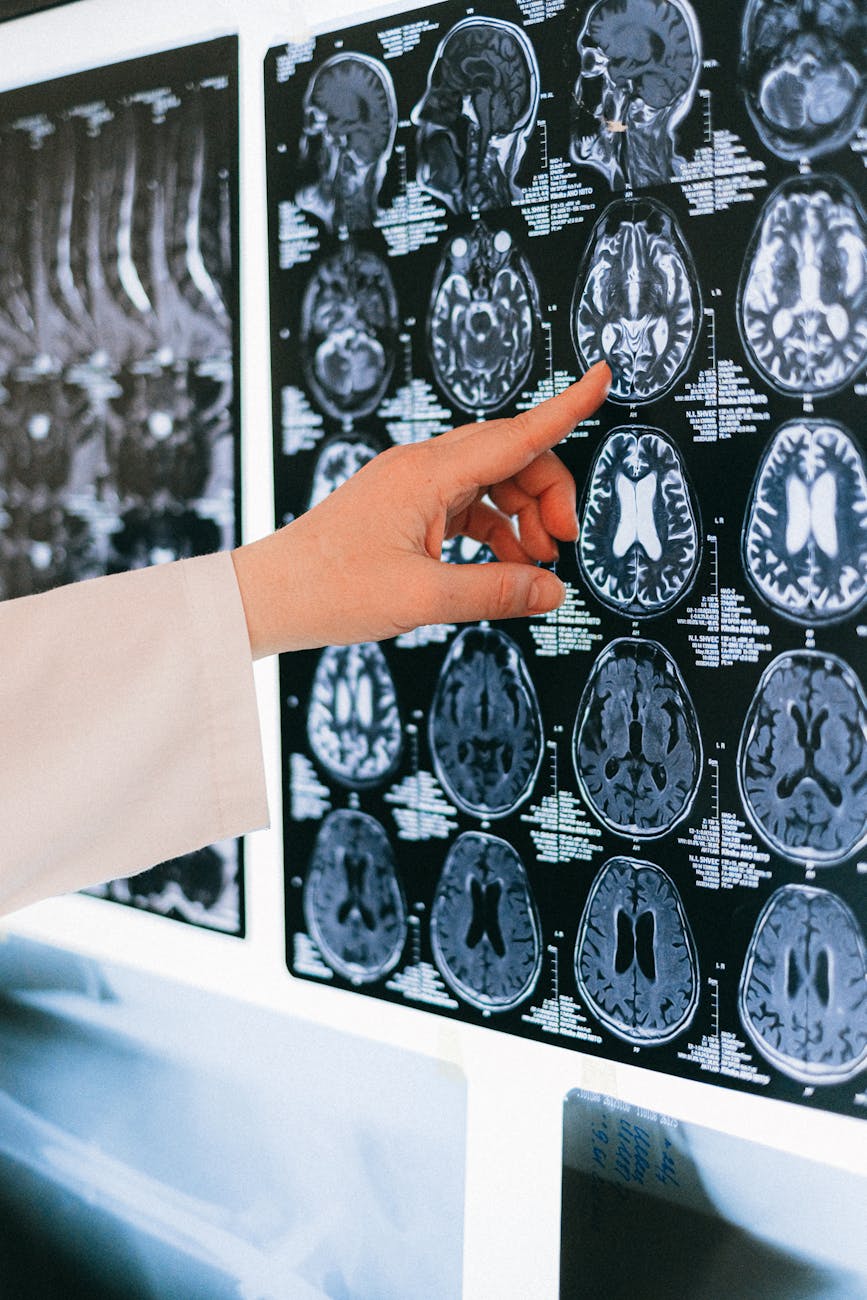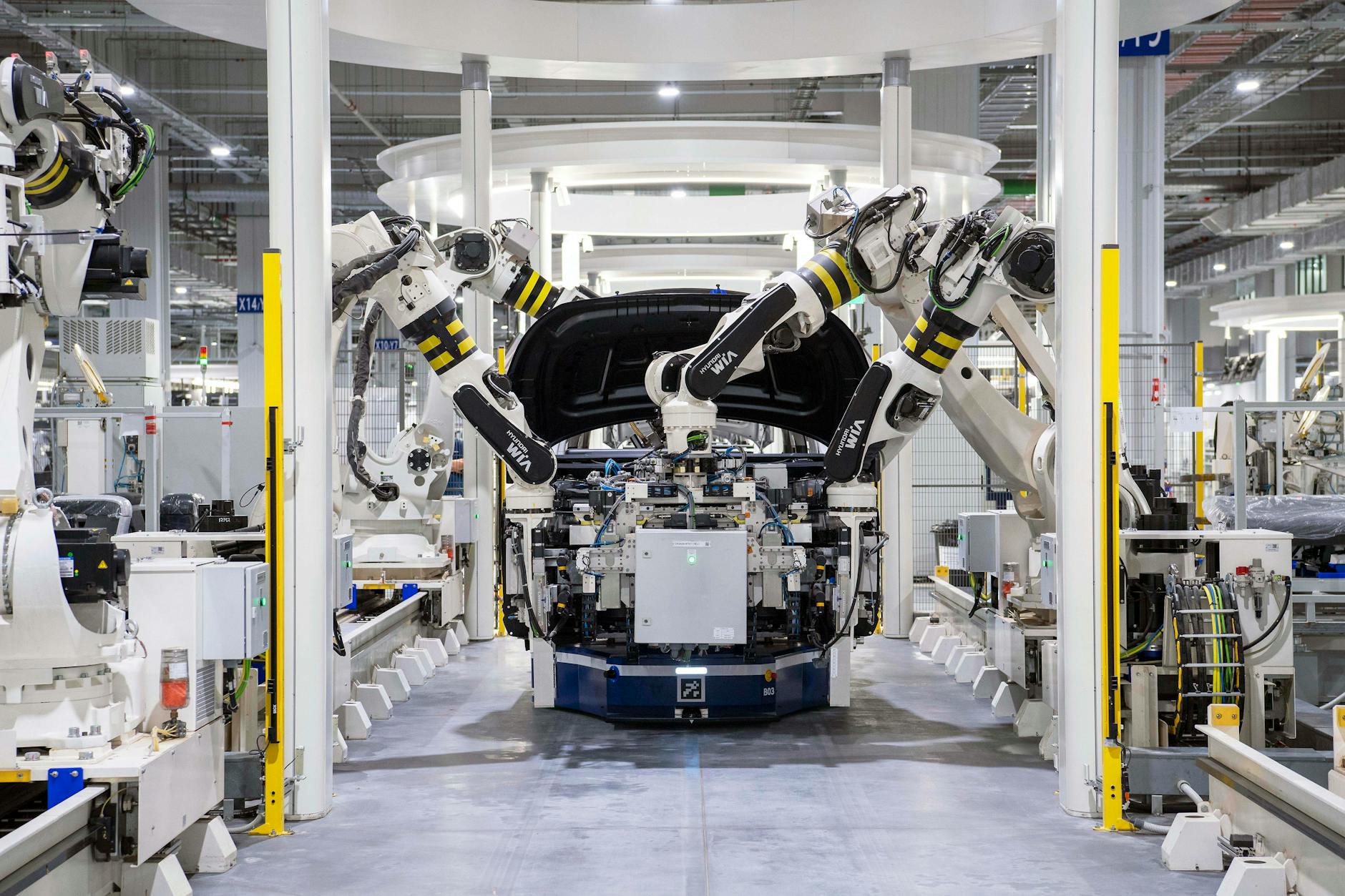Artificial intelligence (AI) is transforming industries worldwide. From healthcare to finance, AI applications are revolutionizing how businesses operate. This technology is not just a catchword; it’s a game-changer.
AI in industries brings efficiency, accuracy, and new opportunities. It’s changing the way we diagnose diseases, manage finances, and even how we shop. The impact of AI is undeniable and far-reaching.
In this article, we will explore the top 15 AI applications that are revolutionizing industries. Discover how AI is driving innovation and transforming the world around us.
Top 15 AI Applications (One line description)
- Healthcare: AI enhances medical imaging accuracy and personalizes treatment plans for better patient outcomes.
- Finance: AI improves fraud detection, optimizes trading strategies, and offers personalized banking services.
- Retail: AI boosts inventory management, personalizes shopping experiences, and enhances customer service with chatbots.
- Manufacturing: AI predicts maintenance needs, ensures quality control, and automates production processes.
- Transportation and Logistics: AI optimizes fleet management, powers autonomous vehicles, and improves traffic management.
- Education: AI personalizes learning, simplifies content creation, and streamlines administrative tasks.
- Agriculture: AI enables precision farming, detects pests and diseases, and powers autonomous machinery.
- Marketing and Sales: AI refines customer segmentation, enhances sales forecasting, and improves CRM systems.
- Human Resources: AI streamlines recruitment, tracks employee performance, and aids in workforce planning.
- Legal and Compliance: AI automates contract management, predicts case outcomes, and ensures regulatory compliance.
- Energy: AI forecasts energy consumption, maintains infrastructure, and manages smart grids for efficient energy use.
- Real Estate: AI improves property valuation, personalizes property recommendations, and manages facility maintenance.
- Entertainment: AI creates content, personalizes recommendations, and provides insights into audience behaviour.
- Customer Service: AI chatbots handle queries, analyse customer sentiment, and anticipate customer needs.
- Cybersecurity: AI detects threats, automates security monitoring, and predicts future vulnerabilities.
1. Healthcare

AI is making waves in medical imaging and diagnostics. Advanced algorithms can analyse X-rays, MRIs, and CT scans with incredible accuracy. This helps doctors detect diseases earlier and more reliably.
AI allows for personalized medicine, tailoring treatments to individual patients. By analysing genetic information and medical history, AI can recommend the best treatment plans. This leads to better outcomes and fewer side effects.
AI also uses predictive analytics to foresee patient outcomes. By examining past data, AI can predict how patients will respond to treatments. This helps doctors make informed decisions and improve patient care.
Read more: Top 10 Real-World Artificial Intelligence (AI) Applications in Healthcare
2. Finance

AI is transforming the finance industry with its advanced capabilities. It plays a crucial role in fraud detection by analysing transaction patterns and identifying unusual activities. This helps prevent financial crimes and enhances security.
In investment strategies, AI algorithms analyse vast amounts of data to make informed decisions. Algorithmic trading uses these insights to optimize trades, resulting in higher profits and reduced risks. This is reshaping the investment landscape.
AI also enhances personalized banking. Chatbots and virtual assistants provide 24/7 customer service, answering queries and performing transactions. This improves customer satisfaction and streamlines banking operations.
3. Retail

AI is revolutionizing the retail industry in numerous ways. It optimizes inventory management by predicting demand and ensuring the right products are in stock. This reduces waste and increases efficiency.
Personalized shopping experiences are made possible with AI. By analysing customer behaviour and preferences, AI can recommend products tailored to individual tastes. This enhances customer satisfaction and boosts sales.
In customer service, AI-powered chatbots handle queries and complaints. They provide quick and accurate responses, improving the overall shopping experience. This leads to higher customer retention and loyalty.
Read more: Top 15 AI Myths Busted | What You Need to Know
4. Manufacturing

AI is reshaping the manufacturing industry with powerful innovations. Predictive maintenance is one of the key applications, where AI monitors machinery and predicts potential failures. This reduces downtime and maintenance costs.
Quality control is enhanced through AI as well. Advanced algorithms detect defects and inconsistencies in products with high precision. This ensures higher product quality and fewer returns.
Automation in production processes is another significant benefit. AI-driven robots and systems streamline manufacturing tasks, increase production rates, and reduce human error. This leads to more efficient and cost-effective operations.
5. Transportation and Logistics

AI is revolutionizing transportation and logistics by optimizing fleet management. AI systems analyse traffic patterns and vehicle data to improve route planning. This reduces fuel consumption and delivery times.
Autonomous vehicles are another exciting development. AI powers self-driving cars and trucks, which promise to increase safety and efficiency on the roads. These technologies are paving the way for future transportation systems.
In urban planning, AI assists with traffic management. It helps predict congestion and suggests solutions to improve traffic flow. This leads to smoother and more efficient transportation networks.
Read more: 5 Ways to Use Artificial Intelligence in Logistics
6. Education

AI is making significant strides in the education sector. Personalized learning experiences are now possible through AI. Adaptive learning platforms analyse student performance and tailor educational content to meet individual needs.
AI-driven content creation simplifies the development of educational materials. It can generate quizzes, assignments, and even detailed reports on student progress. This makes the teaching process more efficient.
Administrative tasks are also streamlined with AI. Automated systems handle scheduling, grading, and data management, freeing up educators to focus on teaching. This improves overall productivity in educational institutions.
Read More: Top 15 Skills of the Future: Essential Competencies for Tomorrow’s Job Market
7. Agriculture

AI is transforming agriculture with advanced technologies. Precision farming is one of the key applications, where AI analyses soil data, weather patterns, and crop health. This helps farmers optimize planting and harvesting strategies.
AI also plays a crucial role in pest and disease detection. By monitoring crops with AI-driven sensors and imaging, farmers can identify issues early. This leads to timely interventions and minimizes crop damage.
Autonomous machinery, such as drones and robots, is revolutionizing farming practices. AI-powered equipment performs tasks like planting, watering, and harvesting with high precision. This increases efficiency and reduces the need for manual Labor.
8. Marketing and Sales

AI is changing the marketing and sales landscape significantly. Customer segmentation is enhanced with AI, which analyses consumer behaviour to create targeted marketing campaigns. This leads to higher engagement and better conversion rates.
Sales forecasting is more accurate with AI-driven predictive analytics. By examining past sales data and market trends, AI helps businesses anticipate future demand. This allows for better inventory management and strategic planning.
AI also improves customer relationship management (CRM). Intelligent systems analyse customer interactions and provide insights for personalized communication. This enhances customer satisfaction and loyalty.
Read More: 15 Ways Artificial Intelligence is Transforming Our World
9. Human Resources

AI is making a notable impact in human resources. Recruitment processes are streamlined with AI, which automates resume screening and candidate matching. This speeds up hiring and ensures a better fit for job roles.
Employee performance tracking is enhanced through AI-driven analytics. These systems evaluate performance metrics and provide insights for development. This helps in setting goals and improving overall productivity.
Workforce planning is more strategic with AI. Predictive analytics forecast staffing needs and help with succession planning. This ensures that organizations have the right talent in place for future growth.
Read more : AI in HR: The Ultimate Guide to Implementing AI in Your HR Organization
10. Legal and Compliance

AI is revolutionizing legal services by automating routine tasks. AI systems can analyse and manage contracts with high precision, reducing the time and effort required for contract review. This streamlines legal workflows and minimizes errors.
Predictive analytics is another valuable application in the legal field. AI can forecast case outcomes based on historical data and case details. This provides lawyers with better insights and improves their strategy.
AI also supports compliance by monitoring regulatory changes and ensuring adherence to laws. Automated systems track compliance requirements and flag potential issues. This helps organizations stay compliant and avoid legal pitfalls.
11. Energy

AI is transforming the energy sector with its innovative applications. Energy consumption forecasting is enhanced by AI, which analyses usage patterns and predicts future demand. This helps in optimizing energy distribution and reducing waste.
Predictive maintenance is crucial for energy infrastructure. AI monitors equipment performance and predicts potential failures before they occur. This reduces downtime and maintenance costs, ensuring reliable energy supply.
Smart grids powered by AI are revolutionizing energy management. AI optimizes the distribution of energy and integrates renewable sources efficiently. This leads to more sustainable and efficient energy use.
Read More: Impact of AI: 15 Key Facts You Must Know About AI’s Influence on Our World
12. Real Estate

AI is making a significant impact on the real estate industry. Property valuation is more accurate with AI, which analyses market trends, property features, and historical data. This helps in determining fair market values.
AI also enhances property recommendations for buyers and investors. By analysing preferences and search behaviour, AI provides personalized property suggestions. This simplifies the search process and improves user satisfaction.
Predictive maintenance for facilities is another application. AI monitors building systems and predicts when maintenance is needed. This helps in managing properties more efficiently and reduces unexpected repair costs.
13. Entertainment

AI is reshaping the entertainment industry in exciting ways. AI-driven content creation tools are now capable of generating scripts, music, and even artwork. This opens up new creative possibilities and speeds up production processes.
Personalized content recommendations are a game-changer. AI analyses viewing habits and preferences to suggest movies, shows, and music tailored to individual tastes. This enhances user experience and keeps audiences engaged.
AI also provides valuable insights into audience behaviour. By analysing social media trends and viewing patterns, AI helps creators understand what resonates with their audience. This data-driven approach leads to more successful content and marketing strategies.
Read more: Revolution or Disruption? The impact of AI in Entertainment & Media
14. Customer Service

AI is revolutionizing customer service with its efficiency and accuracy. AI-powered chatbots are now handling customer queries 24/7, providing instant responses and resolving issues without human intervention. This leads to quicker resolutions and higher customer satisfaction.
Sentiment analysis is another powerful application. AI can analyse customer feedback and social media posts to gauge public sentiment. This helps businesses understand their customers’ feelings and address concerns proactively.
Predictive analytics also plays a key role. AI forecasts customer needs and behaviour based on historical data. This allows companies to anticipate issues and offer personalized support, enhancing the overall customer experience.
15. Cybersecurity

AI is at the forefront of enhancing cybersecurity. It helps in threat detection by analysing network traffic and identifying unusual patterns that may indicate cyber attacks. This proactive approach helps prevent breaches before they occur.
Automated security monitoring is another crucial application. AI systems continuously scan for vulnerabilities and potential threats, providing real-time alerts and responses. This ensures that security measures are always up to date.
Predictive analytics also strengthens cybersecurity by forecasting potential attack vectors. By analysing past incidents and emerging threats, AI can anticipate and prepare for future security challenges. This makes cybersecurity defences more robust and adaptive.
Final note:
AI is revolutionizing industries and changing the way we work and live. From improving healthcare diagnostics to transforming customer service, the impact of AI is both profound and widespread. These technologies are making processes more efficient and providing valuable insights.
The future of AI promises even greater advancements. As AI continues to evolve, its applications will expand, creating new opportunities and driving innovation across various sectors.
Embracing AI is essential for staying competitive and leveraging its full potential. By understanding and implementing these AI applications, businesses can enhance their operations and lead in their industries. The AI revolution is here, and its benefits are transformative and far-reaching.
15 FAQ’s (Frequently Asked Questions):
-
How does AI contribute to sustainable agriculture?
AI promotes sustainable agriculture by optimizing resource use, reducing chemical inputs, and improving crop management practices.
-
What are some emerging AI trends in finance?
Emerging AI trends in finance include decentralized finance (DeFi) platforms, robo-advisors for investment, and AI-driven financial planning tools.
-
How can AI improve user experience in e-commerce?
AI enhances user experience in e-commerce by providing dynamic pricing, personalized product recommendations, and seamless virtual shopping assistants.
-
What are AI’s applications in urban planning?
AI assists in urban planning by analysing traffic patterns, optimizing public transportation routes, and predicting urban growth trends.
-
How does AI aid in climate change research?
AI aids climate change research by analysing environmental data, modelling climate scenarios, and predicting the impact of various climate policies.
-
In what ways does AI enhance employee training programs?
AI enhances employee training by offering personalized learning paths, simulating real-world scenarios, and tracking progress to tailor training interventions.
-
What role does AI play in optimizing supply chain logistics?
AI optimizes supply chain logistics by predicting demand, managing inventory levels, and streamlining supplier relationships.
-
How does AI impact creative industries like film and music?
AI impacts creative industries by generating new artistic content, assisting in scriptwriting, and analysing audience preferences to shape future projects.
-
What are some unique applications of AI in sports analytics?
Unique applications of AI in sports analytics include performance tracking, injury prediction, and strategic game planning based on player data.
-
How does AI contribute to advancements in autonomous drones?
AI advances autonomous drones by enhancing navigation systems, enabling real-time decision-making, and improving object detection and avoidance.
-
What are the privacy concerns associated with AI in healthcare?
Privacy concerns with AI in healthcare include data security risks, potential misuse of personal health information, and ensuring patient consent.
-
How can AI be used in disaster response and management?
AI can be used in disaster response by predicting natural disasters, optimizing rescue operations, and analysing damage to coordinate relief efforts.
-
What innovations are AI bringing to smart home technology?
AI innovations in smart home technology include voice-activated controls, energy management systems, and automated security features.
-
How is AI used in enhancing online education platforms?
AI enhances online education platforms by providing interactive learning experiences, adaptive assessments, and real-time feedback for students.
-
What role does AI play in modern-day journalism?
AI plays a role in journalism by automating news writing, analysing reader preferences, and detecting misinformation to ensure content accuracy.




